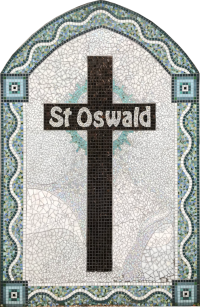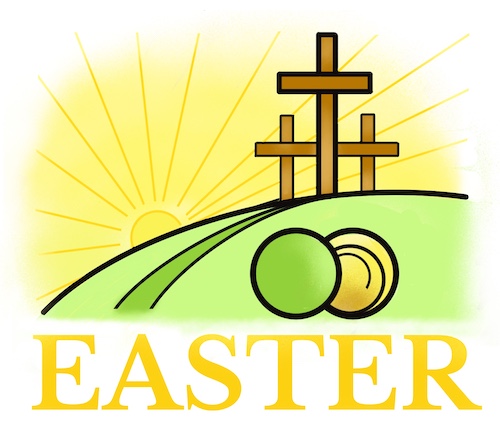9th April: EASTER
Easter is the most joyful day of the year for Christians. Christ has died for our sins. We are forgiven. Christ has risen! We are redeemed! We can look forward to an eternity in His joy! Hallelujah!
The Good News of Jesus Christ is a message so simple that you can explain it to someone in a few minutes. It is so profound that for the rest of their lives they will still be ‘growing’ in their Christian walk with God.
Why does the date move around so much? Because the date of Passover moves around, and according to the biblical account, Easter is tied to the Passover. Passover celebrates the Israelites’ exodus from Egypt, and it lasts for seven days, from the middle of the Hebrew month of Nisan, which equates to late March or early April.
Sir Isaac Newton was one of the first to use the Hebrew lunar calendar to come up with firm dates for the first Good Friday: Friday 7th April 30 AD or Friday 3rd April, 33 AD with Easter Day falling two days later. Modern scholars continue to think these two Fridays to be the most likely.
Most people will tell you that Easter falls on the first Sunday after the first full moon after the Spring Equinox, which is broadly true. But the precise calculations are complicated and involve something called an ‘ecclesiastical full moon’, which is not the same as the moon in the sky. The earliest possible date for Easter in the West is 22nd March, which last fell in 1818. The latest is 25th April, which last happened in 1943.
Why the name, ‘Easter’? In almost every European language, the festival’s name comes from ‘Pesach’, the Hebrew word for Passover. The Germanic word ‘Easter’, however, seems to come from Eostre, a Saxon fertility goddess mentioned by the Venerable Bede. He thought that the Saxons worshipped her in ‘Eostur month,’ but may have confused her with the classical dawn goddesses like Eos and Aurora, whose names mean ‘shining in the east’. So, Easter might have meant simply ‘beginning month’ – a good time for starting up again after a long winter.
Finally, why Easter eggs? On one hand, they are an ancient symbol of birth in most European cultures. On the other hand, hens start laying regularly again each Spring. Since eggs were forbidden during Lent, it’s easy to see how decorating and eating them became a practical way to celebrate Easter.

